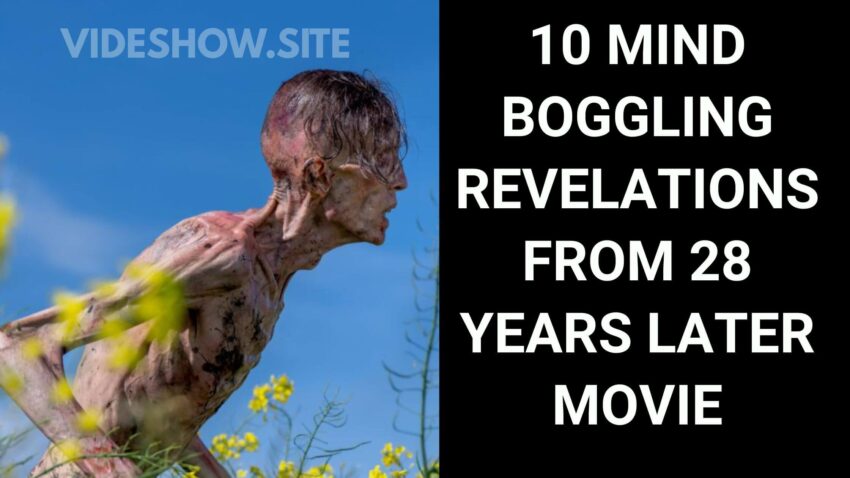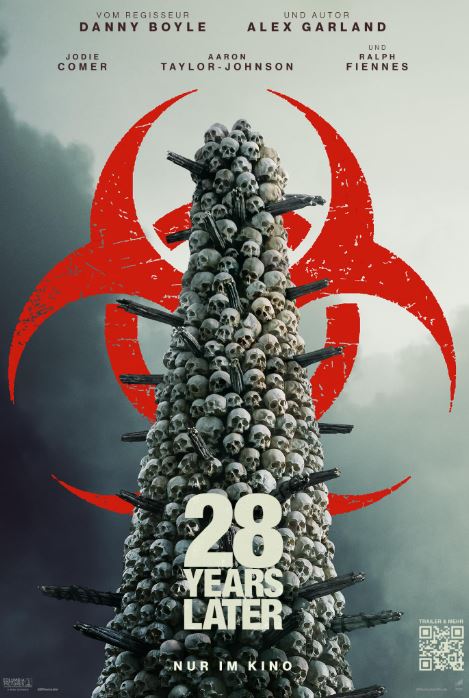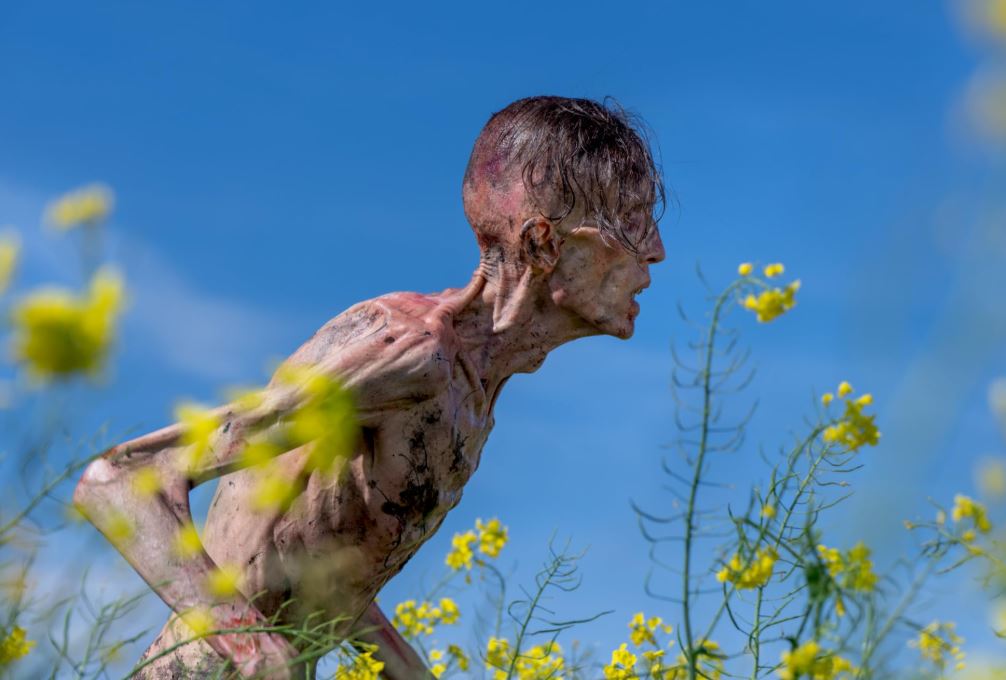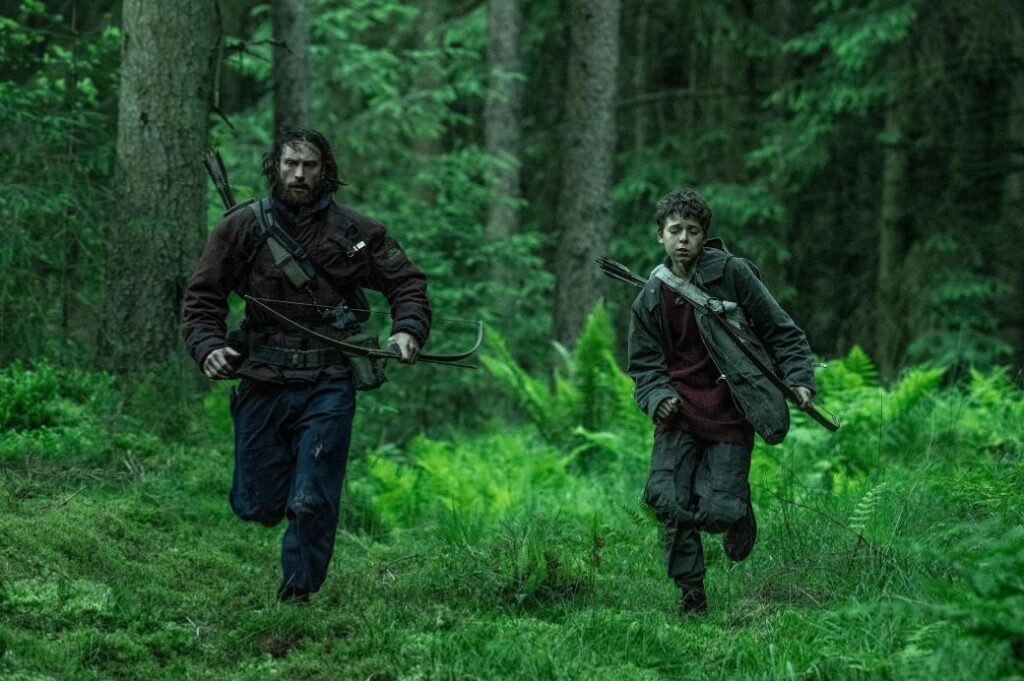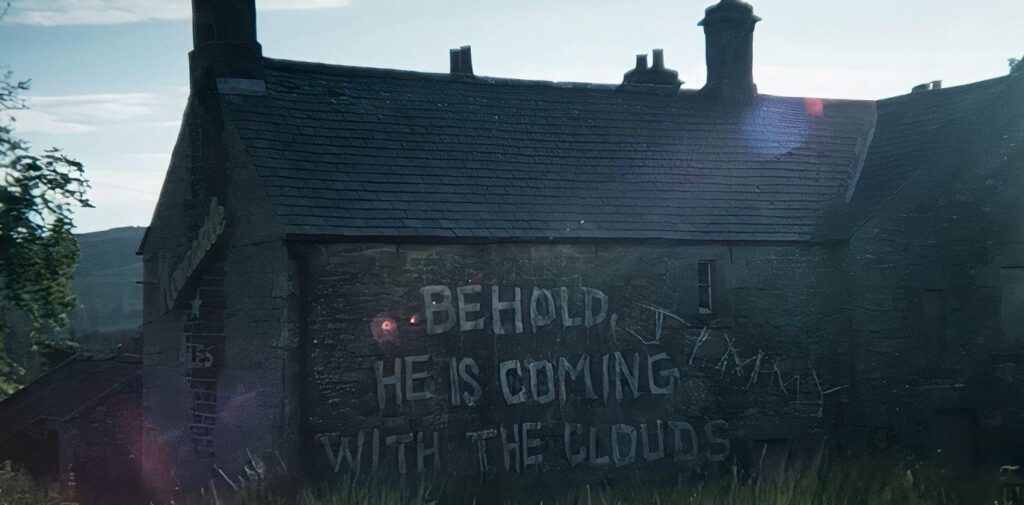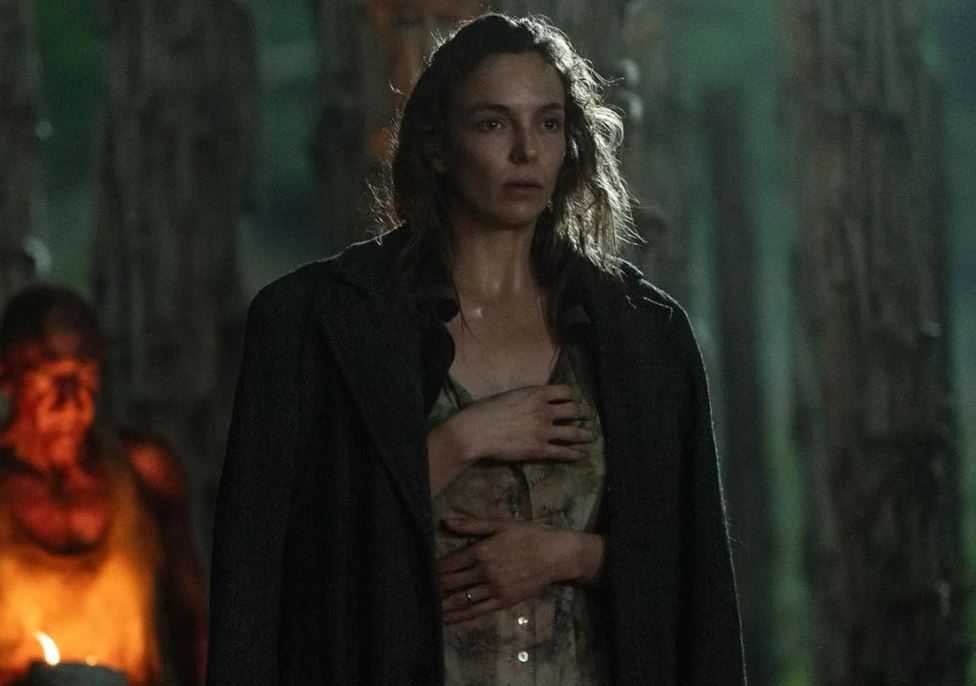Click Here to Watch This Movie Now
Imagine waking up to a world where the monsters aren’t just outside your door; they’re inside your head.
That was the jolt 28 Days Later delivered in 2002, and now, after nearly three decades (both in real time and in the film’s universe), director Danny Boyle and writer Alex Garland have returned to their infected wasteland with 28 Years Later.
This isn’t just a sequel; it’s a reanimation of the entire post-apocalyptic genre, with a few wicked twists and turns that will leave your mind reeling.
So, what makes 28 Years Later movie so much more than just another zombie flick?
Here are 10 mind-boggling revelations that prove this is the most ambitious and thought-provoking installment yet.
1. The Virus Didn’t Win But Neither Did Humanity
You might expect that, after 28 years, the Rage virus would have either wiped out humanity or burned itself out.
Instead, Boyle and Garland present a chilling stalemate: the infection has been contained to the U.K. mainland, but the survivors are barely clinging to civilization, living in fortified enclaves and medieval conditions 456.
The world hasn’t ended, but it’s certainly not the one we knew.
2. A New Generation, Raised on Fear
Click Here to Watch This Movie Now
The film centers on 14-year-old Spike, a child of the apocalypse who’s never known the world before the virus 56.
For Spike and his peers, the stories of the outbreak are almost mythic lessons in survival, not history. This generational divide adds a haunting layer: what happens when trauma becomes tradition?
3. The Setting: Holy Island, A Fortress and a Prison
Boyle and Garland relocate the action to a small, heavily fortified island connected to the mainland by a single, guarded causeway 6.
Holy Island is both sanctuary and cage, its inhabitants living in a state of perpetual siege.
The geography isn’t just a backdrop; it’s a metaphor for the characters’ psychological isolation.
4. The Medieval Turn: Survival Goes Backwards
Click Here to Watch This Movie Now
Forget high-tech solutions or government rescue. Life on Holy Island is described as “positively medieval,” with survival dictated by ancient rituals, superstition, and brute force 4.
Boyle makes this explicit, showing how, in the absence of progress, society regresses to its most primal form.
5. Kelson: The Kurtz of the Apocalypse
Enter Kelson, a mysterious outcast who evokes Apocalypse Now’s Colonel Kurtz—a figure who’s lost himself in the darkness of the infected world 5.
His penchant for burning bodies en-masse and his enigmatic presence at the Bone Temple add a mythic, almost religious dimension to the horror.
Is he a savior, a madman, or something else entirely?
6. The Real Monsters: Us
Click Here to Watch This Movie Now
In true zombie fiction fashion, the film leans into the idea that the real threat isn’t always the infected—it’s the survivors themselves5.
The lines between hero and villain blur, especially as Spike faces his ultimate test in the Bone Temple, where morality and survival collide in shocking ways.
7. A Coming-of-Age Story in the Shadow of Extinction
At its core, 28 Years Later is a harrowing coming-of-age tale. Spike’s journey from innocence to experience mirrors the broader question: how do you grow up when the world is broken?
The film’s emotional heft comes from watching a child navigate not just monsters, but the monstrous choices adults make to survive 5.
8. Boyle and Garland’s Evolution: Heart Over Horror
Unlike many sequels that try to outdo their predecessors with bigger scares, Boyle and Garland focus on matters of the heart.
The action is intense, but the real evolution is in the storytelling—less about running from the infected, more about confronting what’s left inside us after decades of fear 5.
9. A Trilogy in the Making—With a Twist
Here’s where things get wild: 28 Years Later is just the beginning.
The film was shot back-to-back with its sequel, 28 Years Later: The Bone Temple, directed by Nia DaCosta, promising an even deeper dive into this world’s mysteries 68.
And while Cillian Murphy (the original’s Jim) serves as executive producer, rumors swirl about his potential return in future installments 8.
10. The Final Twist: What If the Cycle Never Ends?
Click Here to Watch This Movie Now
Just when you think you’ve seen every permutation of the zombie apocalypse, Boyle and Garland drop their most unsettling idea yet: maybe the real infection isn’t the Rage virus; it’s the cycle of violence, fear, and isolation that humanity can’t escape5.
The film ends not with a cure or a collapse, but with a question: after 28 years, have we learned anything at all? Or are we doomed to keep repeating our worst mistakes, over and over?
The Last Word: Are We the Real Monsters?
28 Years Later doesn’t just bring the infected back to life; it resurrects the existential dread that made the original a classic.
With its narrow focus, medieval setting, and heart-wrenching performances, the film asks us to confront the possibility that, after all this time, the greatest threat to humanity might be… humanity itself54.
So, as you leave the theater, don’t just check the shadows for infected.
Look in the mirror. The real twist? The apocalypse was never out there. It was always inside us.
Click Here to Watch This Movie Now
Ready for the next chapter? The Bone Temple awaits. But be warned: some doors, once opened, can never be closed.
- https://www.theringer.com/2025/06/18/movies/28-years-late
- https://www.hollywoodreporter.com/movies/movie-features/danny-boyle-talks-28-years-later-trilogy-plan-1236293456/
- https://bloody-disgusting.com/reviews/3873444/28-years-later-review-danny-boyle-alex-garland-launch-new-trilogy-with-epic-journey/
- https://www.denofgeek.com/movies/28-years-later-review-danny-boyl-alex-garland/
- https://www.ign.com/articles/28-years-later-review-danny-boyle-alex-garland-aaron-taylor-johnson-jodie-comer
- https://en.wikipedia.org/wiki/28_Years_Later
- https://www.imdb.com/list/ls055521501/
- https://en.wikipedia.org/wiki/28_Days_Later_(film_series)
- https://www.nwpb.org/author/sreeder/feed/
